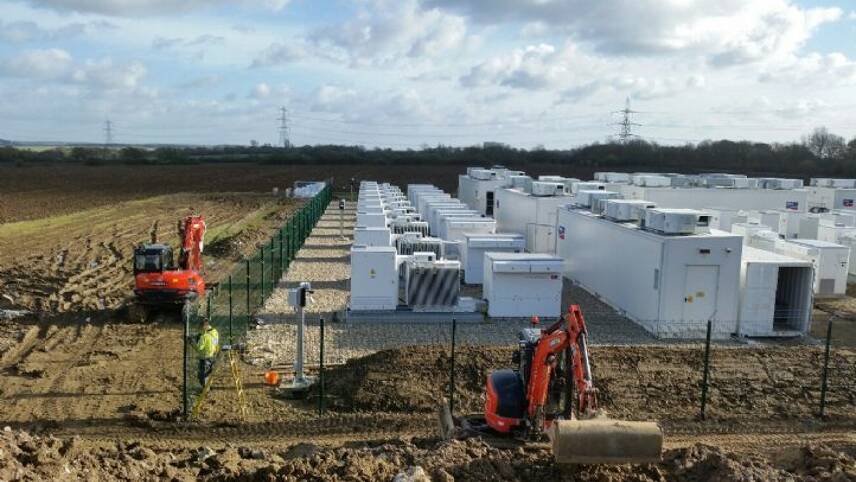Register for free and continue reading
Join our growing army of changemakers and get unlimited access to our premium content

Battery storage projects are becoming increasingly common in the UK
Launched on Monday (14 January), the Department for Business, Energy and Industrial Strategy’s (BEIS) consultation asks developers, investors and other energy storage sector stakeholders how policy can help stimulate the construction of co-located renewable arrays and storage systems.
Specifically, the consultation aims to garner opinions on whether BEIS should alter current regulation surrounding large-scale storage projects with a capacity of 50MW or more. Currently, these projects are required to pass through the Nationally Significant Infrastructure Projects (NSIP) regime, while smaller developments are processed through local planning frameworks.
The consultation proposes that the 50MW “cap” is removed, allowing all storage projects, regardless of capacity or output, to be sent to local authorities for planning committee approval.
It additionally recommends that storage projects co-located with other forms of generation should only need to pass through the national planning system if the capacity of each aspect exceeds 50MW.
According to BEIS, such moves would spur the uptake of renewables and storage without distorting investment decisions.
“Our findings so far indicate that the 50MW capacity threshold, which triggers the need for a proposal to be brought into the NSIP regime, does not in itself distort storage developers’ sizing and investment decisions to a significant degree,” the consultation document states.
The consultation closes on March 25, with respondents encouraged to submit their evidence online, by email or by post. Any policy changes resulting from the consultation will apply to England only.
Industry reaction
The launch of the consultation has been welcomed by the Renewable Energy Association’s head of policy Frank Gordon, who said: “A future UK electricity system with high energy storage deployment will reduce the need to produce ‘peak’ demand from fossil fuels, accelerate decarbonisation by improving the efficiency of wind and solar generation and reduce the need for costly grid reinforcement.
“With this consultation, the Government is proposing to make it easier for grid-scale storage to secure planning permission, which will remove a crucial barrier to this promising sector’s growth. This, in turn, will support job creation in cleantech design, manufacturing and operations.”
In its response to the consultation, the REA is set to back BEIS’s proposals and recommend that it also introduces expanded Permitted Development rights to companies wishing to erect co-located generation and storage facilities.
Recharging our batteries
The launch of the consultation comes at a time when energy storage projects are becoming increasingly common in the UK, with the Solar Trade Association (STA) having recently estimated that planning permission applications for such facilities have quadrupled since 2016.
The trade body claims that UK applications for storage portfolios totalled just 2MW of capacity in 2012, soaring to a cumulative total of 6,874MW in 2018.
As the storage revolution continues to gather pace – with some predicting that the sector will grow on a trajectory similar to the solar industry during the early 2000s – energy market analyst Aurora Energy Research has estimated that more than £6bn will need to be invested in the UK’s energy storage market by 2030.
The early signs of investment are encouraging, with the UK’s largest storage portfolio carried out last July by SMA Sunbelt Energy, and Scotland installing its first utility-scale battery facility in September 2018.
Since then, the businesses from a variety of sectors have made moves to join this trend. Oil and gas giant Shell this month installed a 1.25MW battery in Norfolk after partnering with UK renewables firm Anesco, for example, while hospitality firm Whitbread recently launched its first battery-powered hotel in Scotland.
Sarah George


Please login or Register to leave a comment.